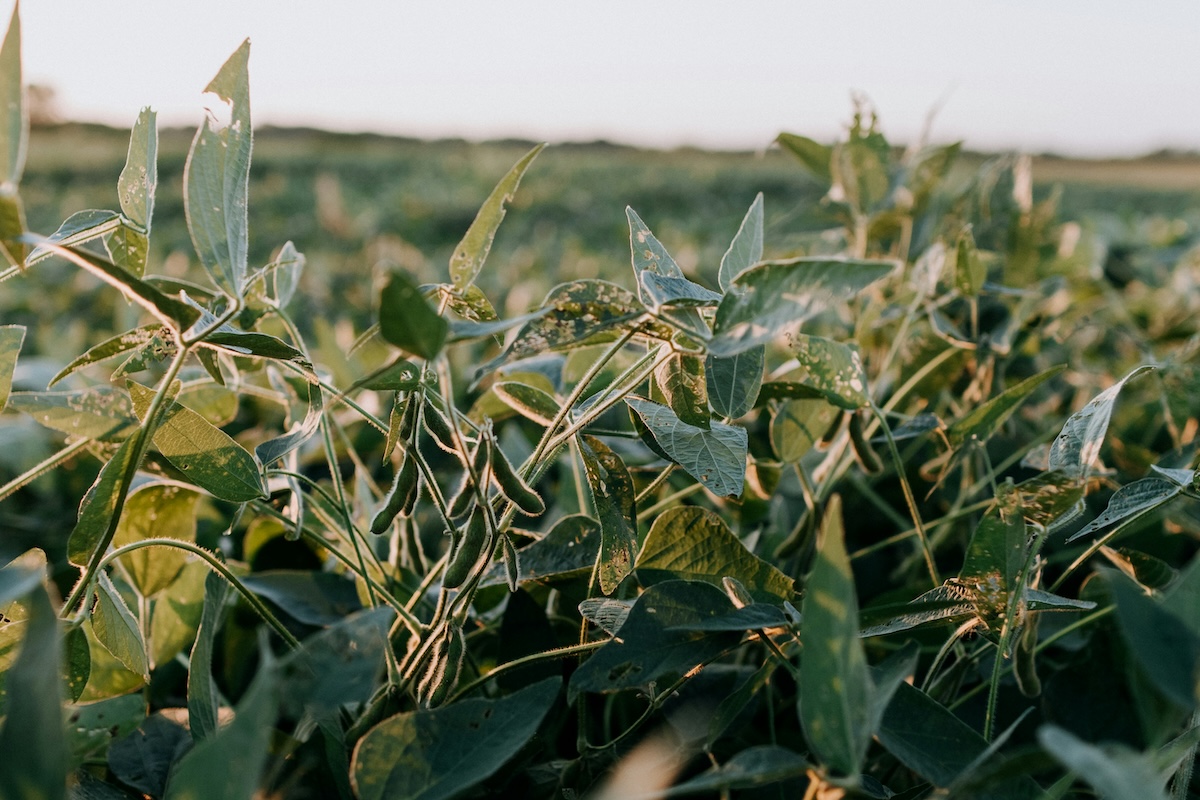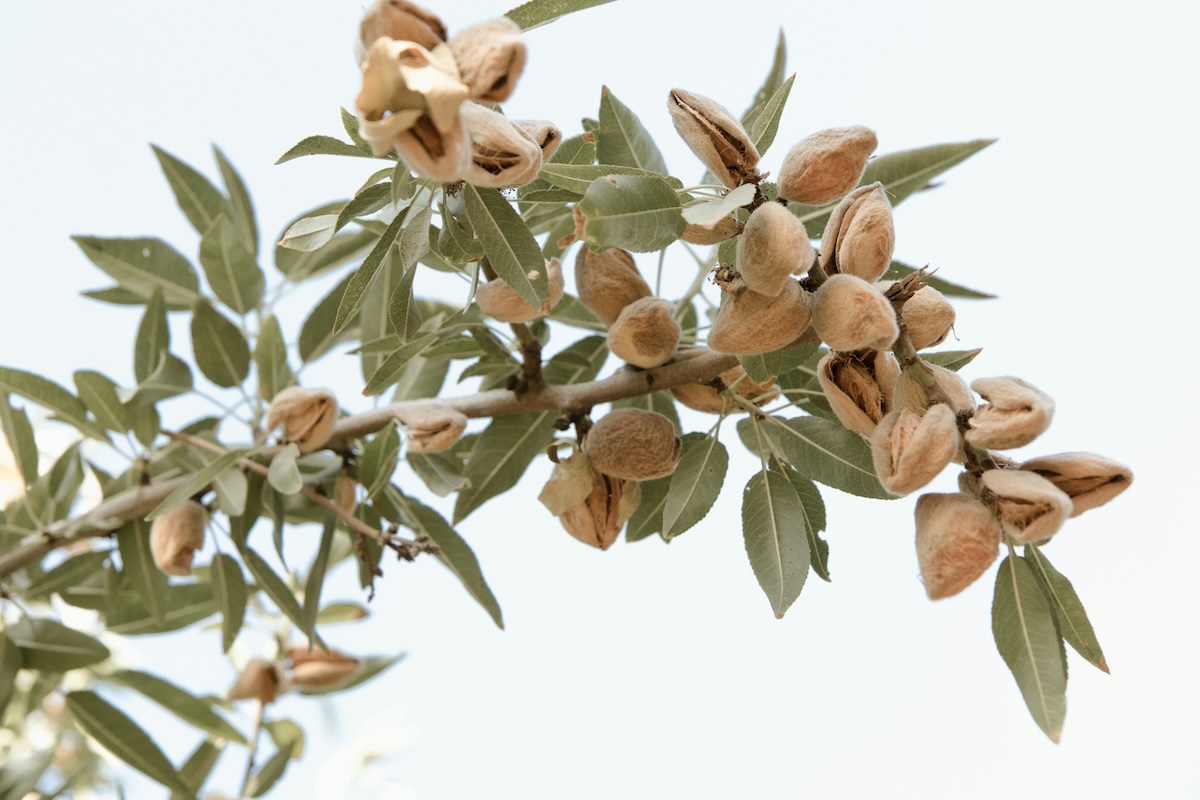Best Plant Milk for the Environment: Sustainability Compared (2026)

This article contains affiliate links to help keep this site free. If you purchase through these links, I may earn a small commission at no extra cost to you. Read our full disclosure policy.
Looking for the most eco-friendly plant milk? You're not alone. As climate awareness grows, more people are choosing dairy alternatives based on environmental impact rather than just taste or nutrition.
The good news? All plant milks have a significantly lower environmental footprint than dairy milk. But some are more sustainable than others. This guide compares the environmental impact of popular plant milks across water usage, carbon emissions, and land use to help you make an informed choice.
🏆 Quick Answer: Most Sustainable Plant Milk
Oat milk is the best plant milk for the environment with the lowest overall footprint. It uses minimal water, produces low greenhouse gas emissions, and requires less land than other options.
Runner-up: Soy milk for excellent sustainability with high protein content.
🌍 Why Plant Milk Is Better for the Environment
Before we compare individual plant milks, let's look at how they stack up against dairy milk as a category. The environmental benefits are substantial across the board.
Plant Milk vs. Dairy Milk: The Big Picture
- Land Use: Plant milks use up to 79% less land than dairy milk
- Greenhouse Gases: Plant milks emit up to 67% less CO₂ compared to dairy
- Water Usage: Most plant milks (except almond) use significantly less water than dairy
- Eutrophication: Plant milks create less water pollution from agricultural runoff
These numbers make it clear that switching from dairy to any plant milk is a positive environmental choice. But if you want to maximize your impact, choosing the most sustainable plant milk matters even more.
🥇 The Most Sustainable Plant Milks Ranked
Based on comprehensive environmental impact data, here's how popular plant milks rank from most to least sustainable:
1. Oat Milk - The Environmental Champion
Winner for overall sustainability. Oat milk consistently ranks as the most environmentally friendly plant milk across multiple metrics. Oats are hardy crops that require minimal water and pesticides, grow in cooler climates, and have low processing requirements.
Environmental Stats:
- Lowest greenhouse gas emissions among plant milks
- Low water usage (about 6 times less than dairy milk)
- Minimal land use
- Often grown locally in temperate regions, reducing transportation emissions
Oat milk also excels in taste and functionality. If you're looking for a milk that works well in coffee or baking, oat milk delivers without the environmental guilt.

🛒 Shop Sustainable Oat Milk:
2. Soy Milk - The Protein Powerhouse
Best for nutrition with low environmental impact. Soy milk has been around the longest and remains one of the most sustainable options. Soybeans are nitrogen-fixing plants that actually enrich soil, reducing the need for synthetic fertilizers.
Environmental Stats:
- Low greenhouse gas emissions
- Moderate water usage (less than dairy, more than oat)
- Efficient land use
- High protein content means more nutrition per environmental impact
Important Note: Choose organic soy milk when possible to avoid GMO concerns and ensure sustainable farming practices. Large-scale soy production for animal feed is linked to deforestation, but soy grown specifically for human consumption (like soy milk) typically has better environmental practices.

🛒 Shop Organic Soy Milk:
3. Pea Milk - The Rising Star
Best for allergen-free sustainability. Pea milk is newer to the market but gaining recognition for its impressive environmental credentials. Yellow peas require minimal water and naturally fix nitrogen in soil.
Environmental Stats:
- Very low water requirements
- Low carbon emissions
- Nitrogen-fixing properties improve soil health
- Nut-free and soy-free for those with allergies
4. Rice Milk - The Hypoallergenic Option
Best for those with multiple allergies. Rice milk is one of the least allergenic plant milks, making it ideal for people with nut, soy, and oat sensitivities. However, it has a higher environmental footprint than oat or soy milk.
Environmental Stats:
- Moderate greenhouse gas emissions (higher than oat/soy)
- High water requirements
- Larger land footprint
- Rice cultivation can produce methane emissions
5. Coconut Milk - The Tropical Choice
Best for specific recipes. Coconut milk brings a unique flavor that works beautifully in curries, smoothies, and tropical dishes. Its environmental impact is moderate but comes with some concerns.
Environmental Stats:
- Low to moderate water usage
- Moderate carbon emissions (transportation is a factor)
- Concerns about monoculture farming and biodiversity loss
- Long-distance shipping increases carbon footprint
To minimize environmental impact, look for organic, fair-trade coconut milk from suppliers committed to sustainable practices.
6. Almond Milk - The Water Concern
Popular but water-intensive. Almond milk is one of the most popular plant milks, but it has the highest water footprint among plant-based options. Growing almonds requires substantial irrigation, particularly in drought-prone California where most almonds are grown.
Environmental Stats:
- Very high water usage (about 20 times more than oat milk)
- Low greenhouse gas emissions
- Moderate land use
- Pesticide use and bee welfare concerns
The Bottom Line: While almond milk still beats dairy milk environmentally, it's not the best choice if water conservation is your priority. See our oat vs almond comparison for more details.

🛒 Shop Responsibly Sourced Almond Milk:
❓ Frequently Asked Questions
Which plant milk is best for the environment?
Oat milk is the best plant milk for the environment overall. It has the lowest greenhouse gas emissions, uses minimal water (6 times less than dairy), requires less land, and oats often grow locally in temperate regions, reducing transportation emissions. Soy milk is a close second with good sustainability credentials.
Is almond milk bad for the environment?
Almond milk has a high water footprint compared to other plant milks, requiring about 20 times more water than oat milk. Most almonds are grown in drought-prone California. However, almond milk still has a significantly lower environmental impact than dairy milk. If water conservation is a priority, choose oat or soy milk instead.
Which plant milk uses the least water?
Oat milk uses the least water among popular plant milks, requiring about 6 times less water than dairy milk and 20 times less than almond milk. Soy milk and pea milk also have low water requirements, making them excellent choices for water conservation.
Is oat milk more sustainable than soy milk?
Oat milk is slightly more sustainable than soy milk overall, with lower greenhouse gas emissions and water usage. However, soy milk is also very sustainable, especially when choosing organic, non-GMO varieties. Both are significantly better for the environment than dairy milk or almond milk.
Are plant milks better for the environment than dairy?
Yes, all plant milks are significantly better for the environment than dairy milk. Plant milks use up to 79% less land, emit up to 67% less CO2, and most use significantly less water than dairy. Switching from dairy to any plant milk is a positive environmental choice.
What is the carbon footprint of plant milk?
Plant milks have much lower carbon footprints than dairy milk. Oat milk produces the least CO2 emissions among plant milks, followed by soy milk. Even almond milk, which has the highest footprint among plant options, still emits far less greenhouse gases than dairy milk.
The Bottom Line
If your primary concern is environmental impact, oat milk is your best bet. It has the lowest overall environmental footprint with minimal water usage, low carbon emissions, and efficient land use.
That said, the most sustainable plant milk is the one you'll actually drink and enjoy. If you can't stand the taste of oat milk but love almond milk, you're still making a significantly more sustainable choice than dairy milk.
Quick recommendations:
- Choose oat milk if: You want the lowest environmental impact overall
- Choose soy milk if: You want sustainability with high protein
- Choose pea milk if: You have allergies but want sustainability
- Choose almond milk if: You prefer the taste and select sustainable brands
Looking for plant milk options for specific uses? Check out our guides for kids, weight loss, or lattes.
🛒 Ready to Make the Switch?
🥛 Find Your Perfect Sustainable Plant Milk
Take our free quiz to discover which eco-friendly plant milk matches your taste and lifestyle!
Take the Quiz →